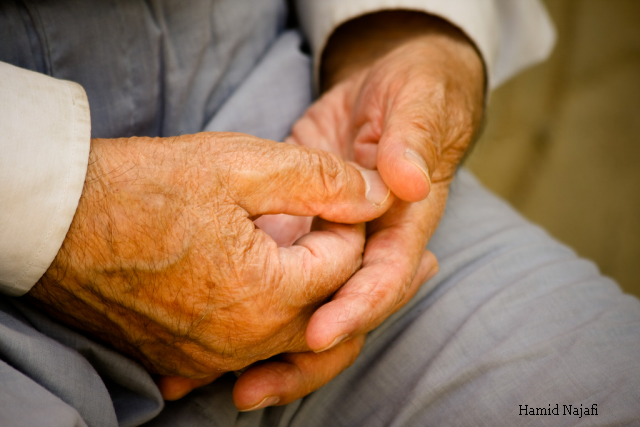Home Care for the Elderly
27.5% of Romania's senior citizens over 65 live in dire poverty, as compared to the European average of 7%.
Warning: Trying to access array offset on null in /home/web/rri.ro/public/wp-content/themes/rri/template-parts/content.php on line 53

Warning: Trying to access array offset on null in /home/web/rri.ro/public/wp-content/themes/rri/template-parts/content.php on line 98
Christine Leșcu,
08.04.2015, 13:13
27.5 % of Romanian senior citizens over 65 (around 900,000 people) live in dire poverty, compared to a European average of 7%. Of them, one in five needs home care, but only 0.23% of them have the benefit of such care. These are grim statistics, little known to the general public. But wait, there’s more. NGOs that offer care services say that, even though over 350,000 people in Romania need home care, the healthcare budget, both insurance and ministry issued, has only paid for home care for 29,306 people. As such, NGOs have joined forces to compensate as much as they can for the lack of government funding. Let’s now listen to Doina Crangasu, head of the Caritas Confederation for Romania:
“Two years ago, Caritas Romania had the initiative of creating an NGO platform providing social and medical services for seniors. In record time we managed to get together 57 NGOs from various counties around the country, which joined this on-line platform. 81% of SeniorNet’s member organizations announced a constant rise in demand for home care. Unfortunately, many requests go unanswered, because social services in Romania have many gaps.”
Even though at this time there is work being done for a map of senior citizens’ needs, to see exactly what they are and in what areas, the need for intervention is urgent, and a number of needs can be readily identified. Depending on those, NGOs offer the following range of home care services: psychological counseling, social assistance, medical care, household work which the seniors is unable to perform. Many problems come from poverty, but also from loneliness. Some seniors are abandoned by families, others suffer from the ‘kids gone to work abroad’ syndrome, just as many kids have the same syndrome for lack of parents. Doina Crangasu:
“These are generally elderly people who live alone either because they don’t have a family, because they are widows, are childless, or their children work abroad, or because an illness has caused them to lose independence and they have become incapable of carrying out daily tasks such as personal care or going to the doctor for treatment. At the same time, Romania faces a higher outflow of younger migrants. This means that in the countryside we see a predominance of older people with no family support, or support from the local authorities.”
At the same time, many retirees have taken fate into their own hands, and created their own assistance structures. One example is the Mutual Assistance House for Retirees ‘Omenia’. With 1,400,000 members nationally and 35,400 members in Bucharest and its surroundings, this institution is underwritten by members and sponsors, as well as through a very low intensity commercial activity whose profits go back to the retirees. In the Rahova-Ferentari area of Bucharest, one of the poorest in the capital, on a tiny street with tiny houses, recalling the slums between the two world wars, we find one of the CARP Omenia areas, a tiny town for seniors with a small shop, a cobbler’s and tailor’s, a barber’s, a chemist’s medical cabinets and a small loan shop. All of them practice symbolic prices, at no profit, according to Gheorghe Chioaru, head of the National Federation of Mutual Assistance Houses for Retirees, who told us how pensioners contribute in order to have access to such services:
“Each member pays a contribution. When they withdraw from the association, they are paid back their dues. In addition to the dues there is a monthly 3 lei contribution, of which 70% goes to help with burial costs, with the rest going for services. The dues depends on the size of pensions. The entrance fee is 20 lei. After that, members can borrow money from the association’s fund, depending on the size of their dues. They can borrow as much as three times more. Interest rates are between 1 and 14%.”
The shop, workshops and medical facilities are for all members. But CARP Omenia pays special attention to the bedridden, as Gheorghe Chioaru told us;
“There are cases in which some pensioners have never seen a doctor in their lives, and we send them a family physician. We have medical caravans going from village to village. In the countryside, old people are forgotten and abandoned. We take bread and food for people stuck in their homes. Another project involves a contract with UnitedAway, involving 100 pensioners who are stuck at home, and we send them food, hygiene products, a nurse, a dentist, and home care providers. The latter are a rarity, because they get training with us, but then leave the country. The state does nothing to encourage us.”
At this moment, the government is working on a national strategy to protect the elderly, a strategy which needs a lot of improvement, as Doina Crangasu says:
“Now we are in a process of public debate launched by the Ministry of Labor and Social Protection in early January. At the center of the public debate we have the National Strategy for the Promotion of Active Aging and Protection of the Elderly. We salute this initiative, but we looked at the project, and it has gaps. They promote active aging, and yet there is no mention of the situation facing most of the elderly right now.”
Until the strategy goes through, NGOs are looking for independent financing, and are looking into European funds earmarked for the 2014-2020 period.






























